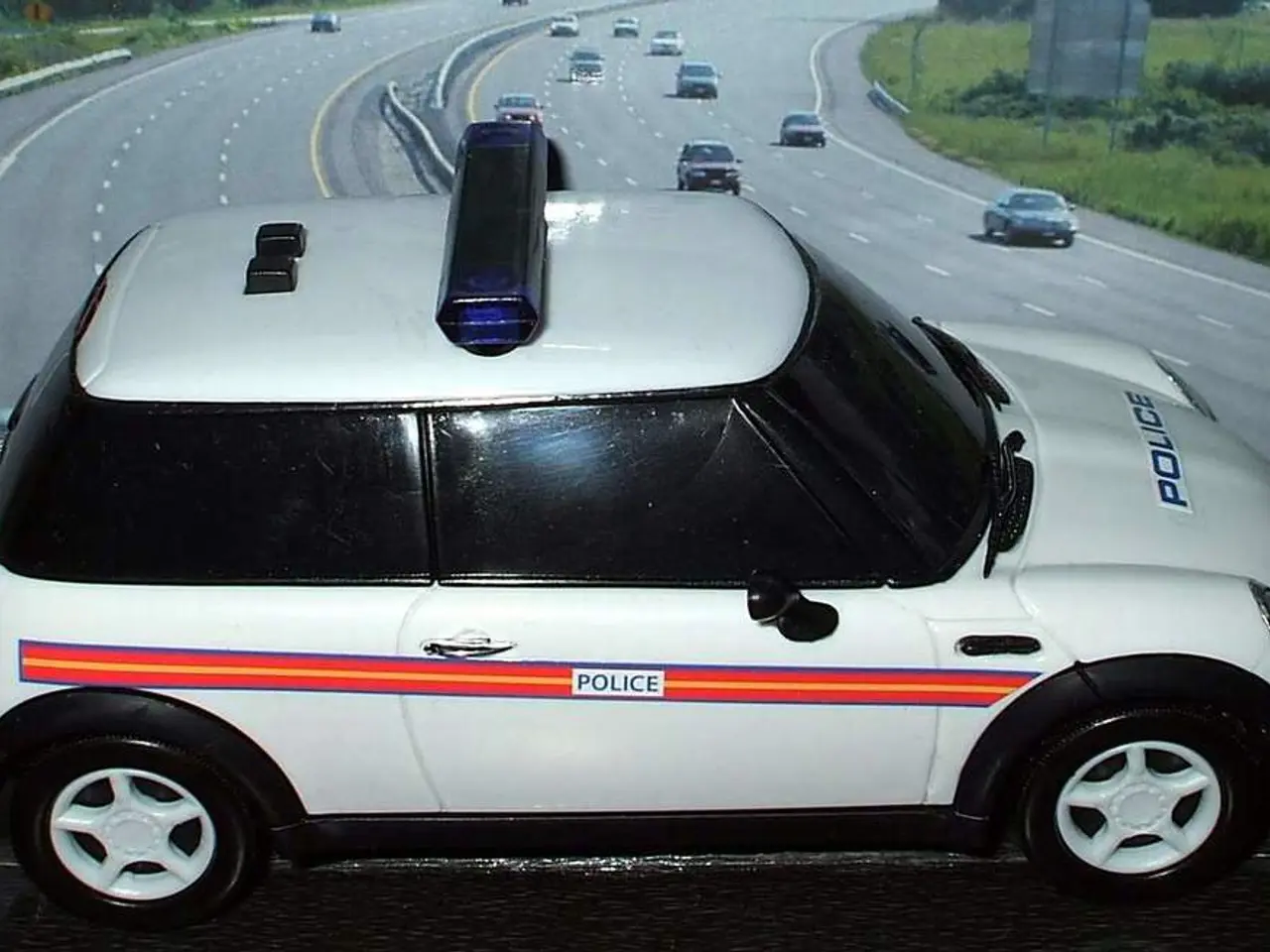Surveillance vans equipped with facial recognition technology deployed nationwide in England for law enforcement intensification
Expansion of Live Facial Recognition (LFR) Vans in England Sparks Debate
The UK Home Office has announced the rollout of ten new LFR vans to seven police forces across England, aiming to enhance policing efficiency [1][2][3]. The participating forces include Greater Manchester, West Yorkshire, Bedfordshire, Surrey, Sussex, Thames Valley, and Hampshire.
Each van is staffed by trained officers who verify every match from the technology, which compares facial measurements from passers-by to bespoke watchlists compiled for each deployment [2][3]. The technology has been found accurate and without bias regarding ethnicity, age, or gender, according to independent testing by the National Physical Laboratory [2][3].
However, concerns about privacy, bias, and misidentification have been raised, particularly by human rights groups like Amnesty International UK, which argue that facial recognition can be discriminatory and lead to wrongful arrests [4]. Civil liberties groups, including Big Brother Watch and Liberty, have expressed similar concerns, stating that the expansion risks creating "a total surveillance society" [5].
The government, in response, has announced a public consultation starting in autumn 2025 to gather opinions on the appropriate use, safeguards, and oversight mechanisms for LFR [1][3]. The use of LFR technology falls under existing data protection law, requiring lawful, fair, and proportionate handling of biometric data [1].
In May, an artificial intelligence (AI) search body criticized the UK government for accelerating the deployment of facial recognition technology without first establishing a comprehensive legal framework [6]. The Ada Lovelace Institute also warned about the increasing use of live facial recognition (LFR) by police and retailers across the UK happening in a "legislative void", raising urgent concerns about privacy, transparency, and accountability [7].
Despite these concerns, ministers claim the LFR system is accurate and bias-free, based on independent testing by the National Physical Laboratory [2][3]. They also emphasize that each match made by the technology will be checked by a trained officer [2][3].
In a significant move, Home Secretary Yvette Cooper stated that the approach will be "targeted" and will be supported by a new legal framework after public consultation [1]. The government aims to ensure that the expansion of LFR is transparent, ethical, and respects individual rights and freedoms.
| Aspect | Details | |------------------------|----------------------------------------------------------------------------------------------| | Deployment | 10 new LFR vans across 7 English police forces, staffed by trained officers | | Legal framework | Use governed by data protection law; consultation planned in late 2025 to craft new rules | | Technology accuracy| Independently tested for no bias; human verification of matches | | Privacy concerns | Risks of misidentification, discrimination, and wrongful arrest raised by human rights groups| | Oversight | Operation under strict conditions, guidance by College of Policing, and surveillance code | | Public consultation| Upcoming to inform appropriate safeguards and transparency |
As the debate continues, the government seeks to strike a balance between enhancing policing efficiency and addressing concerns about privacy protection, potential bias, and risks of misidentification.
Read also:
- Show a modicum of decency, truly
- Latest updates for July 31: Introduction of Ather 450S with expanded battery, unveiling of new Tesla dealership, and additional news
- VinFast's debut EV plant in India, Tata Harrier EV distribution starts, next-gen Mahindra Bolero sightings caught on camera
- Tesla-powered residences in Houston create a buyers' frenzy




